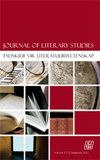Media, Minority Discourses and Identity Politics in Post-Genocide Rwanda
IF 0.2
4区 文学
0 LITERARY THEORY & CRITICISM
引用次数: 0
Abstract
Summary This article explores how media has been used to shape the contours of political debate and ethnic identities in post-genocide Rwanda. The article will argue that although the government of Paul Kagame has loosened control on media, its obsession with constructing an “exeptionalised genocide narrative”, has been to a larger measure used as a weapon to gag media freedom. The poor and marginalised Rwandans or “minority discourses” find it very difficult to express their political identities outside the officially sanctioned spaces and categories. The consequence is a fundamentally flawed political narrative that the state uses to practice state sanctioned media censorship, eliminate “dissenting” voices and destroy civic society. Also, in postgenocide Rwanda, there is a worrisome tendency by the government in which citizens are categorised into two groups, described as “saints” and “sinners”, although this is veiled under the policy of “Rwandanicity”. This binary categorisation of society, which is also used to [re]configure state-owned media narratives, is heavily contested in this article because it discourages the emergence of alternative “voices” and “discourses” which can confront the politics of inclusion and exclusion practiced by the state based on who was a “victim” or “perpetrator” of violence during the 1994 genocide. It is also going to be unveiled how private media is often accused by the state for causing “ethnic divisionism”, “negationism”, and of harbouring an “ethnic ideology and genocide mentality”. The degree to which media contest the manipulation of “truths”, challenge the monopoly on knowledge construction, and of political correctness by the state will reflect the extent to which the government can either constrict or democratise media space for full citizen participation in post-genocide Rwanda.卢旺达种族灭绝后的媒体、少数民族话语和身份政治
本文探讨了在卢旺达种族灭绝后,媒体如何被用来塑造政治辩论和种族认同的轮廓。这篇文章认为,尽管保罗·卡加梅政府放松了对媒体的控制,但其对构建“例外的种族灭绝叙事”的痴迷,在更大程度上被用作钳制媒体自由的武器。贫穷和被边缘化的卢旺达人或“少数话语”发现很难在官方认可的空间和类别之外表达他们的政治身份。其结果是一种根本上有缺陷的政治叙事,国家利用这种叙事来实施国家批准的媒体审查,消除“不同意见”的声音,摧毁公民社会。此外,在种族灭绝后的卢旺达,政府有一种令人担忧的趋势,即将公民分为“圣人”和“罪人”两类,尽管这在“卢旺达性”政策下是隐蔽的。这种社会的二元分类也被用来重新配置国有媒体叙事,在本文中受到强烈质疑,因为它阻碍了其他“声音”和“话语”的出现,这些声音和话语可以对抗国家基于谁是1994年种族灭绝期间暴力的“受害者”或“肇事者”而实行的包容和排斥政治。这也将揭示私人媒体如何经常被国家指责为造成“民族分裂”、“否定主义”,以及窝藏“民族意识形态和种族灭绝心态”。媒体在多大程度上反对对“真相”的操纵,挑战对知识建构的垄断,以及国家的政治正确性,将反映出政府在多大程度上能够限制或民主化媒体空间,以使卢旺达在种族灭绝后公民充分参与。
本文章由计算机程序翻译,如有差异,请以英文原文为准。
求助全文
约1分钟内获得全文
求助全文
来源期刊

Journal of Literary Studies
Multiple-
CiteScore
0.50
自引率
0.00%
发文量
0
期刊介绍:
The Journal of Literary Studies publishes and globally disseminates original and cutting-edge research informed by Literary and Cultural Theory. The Journal is an independent quarterly publication owned and published by the South African Literary Society in partnership with Unisa Press and Taylor & Francis. It is housed and produced in the division Theory of Literature at the University of South Africa and is accredited and subsidised by the South African Department of Higher Education and Training. The aim of the journal is to publish articles and full-length review essays informed by Literary Theory in the General Literary Theory subject area and mostly covering Formalism, New Criticism, Semiotics, Structuralism, Marxism, Poststructuralism, Psychoanalysis, Gender studies, New Historicism, Ecocriticism, Animal Studies, Reception Theory, Comparative Literature, Narrative Theory, Drama Theory, Poetry Theory, and Biography and Autobiography.
 求助内容:
求助内容: 应助结果提醒方式:
应助结果提醒方式:


